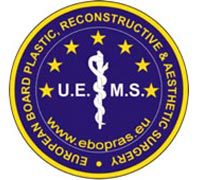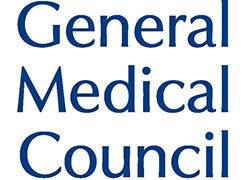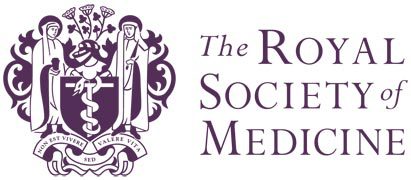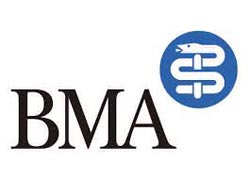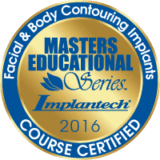PRP for Facial Rejuvenation
Platelet Rich Plasma (PRP) Therapy is a non-invasive cosmetic procedure which makes use of the patient’s own blood platelets to stimulate the growth of new cells, which helps improve skin texture, complexion and helps restore facial volume.
Why choose PRP?
PRP stimulates DNA repair, heals scars and makes dry lacklustre skin look and feel younger. It works as an anti-ageing treatment and is used for including treating hair loss. It is a simple, totally natural and an alternative non-surgical procedure to skin rejuvenation. PRP provides safe and reliable results and has a very quick recovery period. Only a small amount of blood is taken as though you are having your routine blood testing and local anesthesia is used, so you experience very minimal discomfort
Why have PRP treatment for the face?
PRP Therapy works as an anti-ageing treatment and a natural non-surgical alternative procedure to skin rejuvenation.
PRP Therapy treatment, also known as Vampire Facial can be an alternative non-surgical treatment for skin rejuvenation. It works to restore facial volume, heal scars and improve skin complexion and texture.
The Vampire Facial helps stimulate new blood vessel development and collagen production so the skin is plumper, rejuvenated and more youthful looking.
Benefits and Results
-
It is prepared from an extract of your own blood
-
Improves skin complexion and texture
-
Restores facial volume
-
Production of new healthy cells
What happens during a PRP/ Vampire Facial?
Blood is drawn from your arm and then separated into plasma and platelets using a centrifuge. This is then injected back into your skin to stimulate new collagen production and to encourage cells to rejuvenate themselves.
- Read More
WHAT CAN PRP ACHIEVE?
-
Improves skin complexion and texture
-
Restores facial volume
-
Production of new healthy cells
-
Stimulates hair growth
WHAT ARE THE ALTERNATIVES TO PRP?
Individual results vary with each patient. As such, everyone responds to PRP differently and Dr Cotrufo can help evaluate your particular situation. An alternative to PRP is Mesotherapy, or dermal fillers for treating lines.
BEFORE YOUR PRP TREATMENT
Dr Cotrufo always invites his patients for at least two consultations before any procedure to make sure everything is clear. The targets are agreed in writing and patients are fully aware of the possible risks and complications associated with PRP.
DURING YOUR CONSULTATION, YOU WILL:
-
Be able to discuss your circumstances
-
Be given time to ask advice and pose questions to Dr Cotrufo
-
Undergo a health evaluation to develop a treatment plan
-
Discuss the options that are open to you, including costs and timescales
-
Ask about risks, benefits and alternatives to PRP
-
Learn more about the PRP procedure
THE PRP PROCEDURE
-
PRP is prepared from an extract of your own blood.
-
PRP will commonly last between 30 minutes and 90 minutes
-
To do this, 30 – 60 ml of blood is drawn from your arm
-
The blood is then placed in a centrifuge. The centrifuge spins and separates the platelets from the rest of the blood components
-
3 – 6 ml of platelet-rich plasma will then be extracted
-
The concentrated and growth hormone-rich platelets are injected into the treatment area
AFTER YOUR PRP TREATMENT
There is no downtime for PRP so you can immediately return to your normal daily routine. It is recommended that strenuous activity and alcohol consumption is be avoided for 24 hours post procedure.
The results of PRP can usually be seen between three to four weeks post treatment. Treatment may need to be repeated every 2-6 months because of the on-going ageing process.
DO YOU HAVE MORE QUESTIONS ABOUT PRP?
If you would like to discuss the PRP procedure in further detail, please call our clinic on 0207 8732330 to organise a personal consultation.
PRP for Hair Strengthening and Regrowth
The procedure uses patient’s own blood platelets to stimulate new cell growth, helping hair appear fuller and healthier.
Platelet-rich plasma (PRP) is best used for treating thinning hair and slowing or stopping the progression of hair loss.
Why have PRP treatment for hair?
PRP treatment can tackle both male pattern baldness and alopecia as it encourages the growth of existing hair follicles, making your hair appear fuller and healthier without resorting to surgery.
Benefits and Results
-
Fuller and healthier natural-looking hair
-
Significantly increase of hair regrowth
-
Production of new healthy cells
-
Decreased hair dystrophy and burning or itching sensation
-
Can serve as a safe and effective treatment option in Alopecia areata (AA)
What happens during PRP therapy for hair loss?
Prepared from an extract of your own blood, the blood is separated into plasma and platelets using a centrifuge, the enriched cells are injected into the scalp.
- Read More
WHAT CAN PRP ACHIEVE?
-
Improves skin complexion and texture
-
Restores facial volume
-
Production of new healthy cells
-
Stimulates hair growth
WHAT ARE THE ALTERNATIVES TO PRP?
Individual results vary with each patient. As such, everyone responds to PRP differently and Dr Cotrufo can help evaluate your particular situation. An alternative to PRP is Mesotherapy, or dermal fillers for treating lines.
BEFORE YOUR PRP TREATMENT
Dr Cotrufo always invites his patients for at least two consultations before any procedure to make sure everything is clear. The targets are agreed in writing and patients are fully aware of the possible risks and complications associated with PRP.
DURING YOUR CONSULTATION, YOU WILL:
-
Be able to discuss your circumstances
-
Be given time to ask advice and pose questions to Dr Cotrufo
-
Undergo a health evaluation to develop a treatment plan
-
Discuss the options that are open to you, including costs and timescales
-
Ask about risks, benefits and alternatives to PRP
-
Learn more about the PRP procedure
THE PRP PROCEDURE
-
PRP is prepared from an extract of your own blood.
-
PRP will commonly last between 30 minutes and 90 minutes
-
To do this, 30 – 60 ml of blood is drawn from your arm
-
The blood is then placed in a centrifuge. The centrifuge spins and separates the platelets from the rest of the blood components
-
3 – 6 ml of platelet-rich plasma will then be extracted
-
The concentrated and growth hormone-rich platelets are injected into the treatment area
AFTER YOUR PRP TREATMENT
There is no downtime for PRP so you can immediately return to your normal daily routine. It is recommended that strenuous activity and alcohol consumption is be avoided for 24 hours post procedure.
The results of PRP can usually be seen between three to four weeks post treatment. Treatment may need to be repeated every 2-6 months because of the on-going ageing process.
DO YOU HAVE MORE QUESTIONS ABOUT PRP?
If you would like to discuss the PRP procedure in further detail, please call our clinic on 0207 8732330 to organise a personal consultation.
PRP for Hair Strengthening and Regrowth
The procedure uses patient’s own blood platelets to stimulate new cell growth, helping hair appear fuller and healthier.
Platelet-rich plasma (PRP) is best used for treating thinning hair and slowing or stopping the progression of hair loss.
Why have PRP treatment for hair?
PRP treatment can tackle both male pattern baldness and alopecia as it encourages the growth of existing hair follicles, making your hair appear fuller and healthier without resorting to surgery.
Benefits and Results
-
Fuller and healthier natural-looking hair
-
Significantly increase of hair regrowth
-
Production of new healthy cells
-
Decreased hair dystrophy and burning or itching sensation
-
Can serve as a safe and effective treatment option in Alopecia areata (AA)
What happens during PRP therapy for hair loss?
Prepared from an extract of your own blood, the blood is separated into plasma and platelets using a centrifuge, the enriched cells are injected into the scalp.
- Read More
WHAT CAN PRP ACHIEVE?
-
Improves skin complexion and texture
-
Restores facial volume
-
Production of new healthy cells
-
Stimulates hair growth
WHAT ARE THE ALTERNATIVES TO PRP?
Individual results vary with each patient. As such, everyone responds to PRP differently and Dr Cotrufo can help evaluate your particular situation. An alternative to PRP is Mesotherapy, or dermal fillers for treating lines.
BEFORE YOUR PRP TREATMENT
Dr Cotrufo always invites his patients for at least two consultations before any procedure to make sure everything is clear. The targets are agreed in writing and patients are fully aware of the possible risks and complications associated with PRP.
DURING YOUR CONSULTATION, YOU WILL:
-
Be able to discuss your circumstances
-
Be given time to ask advice and pose questions to Dr Cotrufo
-
Undergo a health evaluation to develop a treatment plan
-
Discuss the options that are open to you, including costs and timescales
-
Ask about risks, benefits and alternatives to PRP
-
Learn more about the PRP procedure
THE PRP PROCEDURE
-
PRP is prepared from an extract of your own blood.
-
PRP will commonly last between 30 minutes and 90 minutes
-
To do this, 30 – 60 ml of blood is drawn from your arm
-
The blood is then placed in a centrifuge. The centrifuge spins and separates the platelets from the rest of the blood components
-
3 – 6 ml of platelet-rich plasma will then be extracted
-
The concentrated and growth hormone-rich platelets are injected into the treatment area
AFTER YOUR PRP TREATMENT
Patients can return to their normal daily routine immediately, as there is no downtime for PRP. We do, however, recommend neither alcohol consumption nor strenuous activity for 24 hours following the procedure.
The results of PRP can usually be seen between three to four weeks post treatment. Treatment may need to be repeated every 2-6 months because of the on-going ageing process.
DO YOU HAVE MORE QUESTIONS ABOUT PRP?
If you would like to discuss the PRP procedure in further detail, please call our clinic on 0207 8732330 to organise a personal consultation.
PRP for Vaginal Rejuvenation
The PRP G-spot treatment aims to treat female sexual dysfunctions; such as difficulty getting aroused, reaching climax or having a low sex drive.
Using your body’s own platelets, cells that form new tissues, to rejuvenate your erogenous areas and sexual function.
Why have G-spot PRP treatment?
The G-spot treatment can increase your sexual desire, help reach climax, and also help treat vaginal dryness and/or incontinence.
Benefits and Results
-
Tissues start to regenerate even just one treatment
-
Increased blood flow and tissue rejuvenation in the area give more pleasurable sexual intercourse
-
Natural and used from your own blood
What happens during PRP therapy for the G-spot?
The PRP is injected into the vagina, clitoris and G spot areas to stimulate vaginal and clitoral rejuvenation.
- Read More
WHAT CAN PRP ACHIEVE?
-
Improves skin complexion and texture
-
Restores facial volume
-
Production of new healthy cells
-
Stimulates hair growth
WHAT ARE THE ALTERNATIVES TO PRP?
Individual results vary with each patient. As such, everyone responds to PRP differently and Dr Cotrufo can help evaluate your particular situation. An alternative to PRP is Mesotherapy, or dermal fillers for treating lines.
BEFORE YOUR PRP TREATMENT
Dr Cotrufo always invites his patients for at least two consultations before any procedure to make sure everything is clear. The targets are agreed in writing and patients are fully aware of the possible risks and complications associated with PRP.
DURING YOUR CONSULTATION, YOU WILL:
-
Be able to discuss your circumstances
-
Be given time to ask advice and pose questions to Dr Cotrufo
-
Undergo a health evaluation to develop a treatment plan
-
Discuss the options that are open to you, including costs and timescales
-
Ask about risks, benefits and alternatives to PRP
-
Learn more about the PRP procedure
THE PRP PROCEDURE
-
PRP is prepared from an extract of your own blood.
-
PRP will commonly last between 30 minutes and 90 minutes
-
To do this, 30 – 60 ml of blood is drawn from your arm
-
The blood is then placed in a centrifuge. The centrifuge spins and separates the platelets from the rest of the blood components
-
3 – 6 ml of platelet-rich plasma will then be extracted
-
The concentrated and growth hormone-rich platelets are injected into the treatment area
AFTER YOUR PRP TREATMENT
There is no downtime for PRP so you can immediately return to your normal daily routine. It is recommended that strenuous activity and alcohol consumption is be avoided for 24 hours post procedure.
The results of PRP can usually be seen between three to four weeks post treatment. Treatment may need to be repeated every 2-6 months because of the on-going ageing process.
DO YOU HAVE MORE QUESTIONS ABOUT PRP?
If you would like to discuss the PRP procedure in further detail, please call our clinic on 0207 8732330 to organise a personal consultation.
© 2023 Dr Stefano Cotrufo | All rights reserved
© 2023 Dr Stefano Cotrufo | All rights reserved
